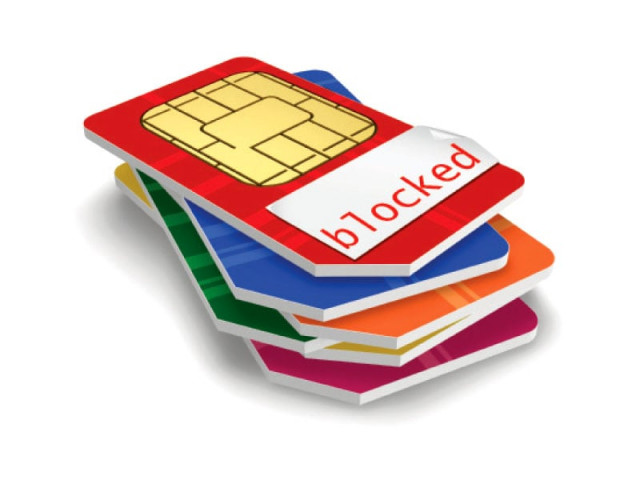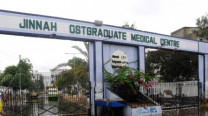Cut down the chase: SC forms task force to check illegal SIMs
Criminals using Chinese device to activate SIM cards, AIG Hayat tells SC bench.

Criminals using Chinese device to activate SIM cards, AIG Hayat tells SC bench. PHOTO: FILE
The Supreme Court (SC) formed a task force on Friday to tackle the spread of illegal SIMs that play a key role in most crimes in the city.
The task force will comprise representatives of all provincial governments, Inter-Services Intelligence, Military Intelligence, Intelligence Bureau, police DIGs from each province and representatives of the five private cellular companies. A larger SC bench, headed by Chief Justice Iftikhar Chaudhry and comprising justices Jawwad Khawaja, Mian Saqib Nisar, Amir Hani Muslim and Ejaz Afzal Khan, made this decision at the suo motu hearing of the Karachi law and order case.

In earlier hearings too, the apex court had pointed out that the use of unauthorised SIMs by terrorists and criminals is a major cause of unrest. It ordered the Pakistan Telecommunications Authority (PTA) and private cellular service providers to come up with a temporary arrangement to get rid of this menace, and then take steps to remove the problem permanently.
On Thursday, Karachi AIG Shahid Hayat disclosed in the court that criminals are using a special device smuggled from China to activate unauthorised SIMs under the names of innocent residents and using them in crimes, such as kidnappings and extortion. “If the issue of illegal mobile SIMs is tackled, kidnappings and extortion would drop by at least 50 per cent,” said Hayat, waving an ordinary cellphone with a small black device.
The SC bench accepted the temporary formulae worked out by the PTA chief, Syed Ismail Shah, who was made the head of the task force.
Limiting imports
The PTA will also keep a check on the types of phones being imported. Customs authorities will have to ensure only phones with proper IMEI numbers are given clearance. The PTA chief will conduct regular meetings, either in Islamabad or at any other PTA headquarters, where the members will submit their suggestions. Progress reports will be sent to the court, as well as the provincial and federal governments within three weeks, the order stated.
Commission on import duties
Attorney General Munir A Malik and Advocate General Khalid Javed Khan submitted a recommendation to appoint a commission that will ensure 100 per cent recovery of the taxes and duties on imports. The commission members will conduct surprise raids on Customs offices at the ports, conduct audits, and physically inspect the goods thus assessed before such goods leave the premises.
This commission will also conduct a post-gate inspection of goods and compare them to the assessments made on respective goods declarations. It will also recommend strategies on how to achieve 100 per cent recovery of collections.
The apex court directed Malik and Khan to nominate judicial, technical and accounting members before December 3 to the SC registrar so the court can pass an order.
Seized arms
Customs chief collector filed a summary of the arms imported and the inspection records from July 2010 to October this year. The report was given to the Rangers director-general and the police IG.
The advocate general informed the judges that an effective strategy to recover illicit arms and ammunition has already been made and they are hoping to make remarkable achievements. He did not, however, disclose the strategy in public interest.
“The law enforcing agencies are also undertaking an exercise to obtain a declaration from the arms licence holders swearing that they are not in possession of any unauthorised arms and ammunition,” said Khan.
He will submit a report on progress in recovering arms and ammunitions by the next hearing.
Here’s what the task force will do:
1. Not more than two SIMs are activated per IMEI every day.
2. No one can have more than five SIMs per IMEI.
3. All cellular companies will call people who have more than 10 SIMs registered and answer a secret question (such as mother’s name or place of birth). Those who answer correctly will be asked to reduce their SIMs to five. All other SIMs will be blocked.
4. Cellular companies and PTA will identify numbers that seem suspicious due to usage or location and block them if their secret information is not verified.
5. Companies will keep strict checks on their retailers and franchises.
6. PTA will approve certain types of phones only.
7. Customs authorities will not allow import of phones without proper IMEIs.
Published in The Express Tribune, November 30th, 2013.



















COMMENTS
Comments are moderated and generally will be posted if they are on-topic and not abusive.
For more information, please see our Comments FAQ